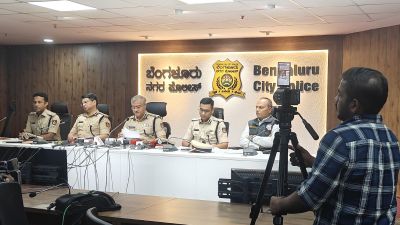Intach roadmap to preserve tribal heritage
After drawing up recommendations for the Central and state governments on preservation of tribal heritage, the Indian National Trust for Art...

After drawing up recommendations for the Central and state governments on preservation of tribal heritage, the Indian National Trust for Art and Cultural Heritage has worked out a roadmap to create urban awareness about the ‘national treasures’ and the need to protect them. To start with, INTACH will organise a tribal cultural festival in Delhi early next year.
The objective of the festival is to educate the mainstream about the indigenous knowledge of the tribals.
Besides, INTACH plans to set up heritage monitors to prevent further destruction of tribal areas, endorse tribals as ‘national treasures’, devise special incentives and other benefits, and address the concepts of Tribal Trusteeship and Intellectual Property Rights.
As a four-day conference on preservation of tribal heritage came to a close, INTACH chairman S K Misra said, ‘‘We are also going to look at setting up research and training centres at the state level and the Centre to preserve the 65 million tribals in India… and set up a tribal heritage centre in Delhi to focus on problems and issues relating to the tribals.’’
The four-day conference was jointly organised by INTACH and the Chhattisgarh Tourism Board.
Misra said, ‘‘The dichotomy between preservation and development of the tribals needs to be dealt with carefully. We have to work out a way to meet the deep felt need of this sizeable and diverse population of tribal communities to walk in step with the 21st century without treading on their deeply rooted traditions.
‘‘Tribal governance is the crux of the conference. It holds the key to various seminal issues like value of tribal lifestyle, sustainability, marketability of tribal art and culture, documentation of traditional wisdom and skills, awareness and tribal sensitivity, platforms for interaction and exchange of the tribals and mainstream, and development of tribal tourism.’’
The recommendations included documentation of tribal traditions, oral literature, customs and rich intangible heritage, sensitizing bureaucrats, sociologists, media and others dealing directly with tribals, conducting workshops and seminars, preparing a small module for training officials posted in tribal areas and facilitating tribal representation in the national mainstream.
Misra said, ‘‘The recommendations will also closely look at promoting tribal fairs, tribal knowledge in the mainstream and patronise specialised study of tribal culture.’’



- 01
- 02
- 03
- 04
- 05




























